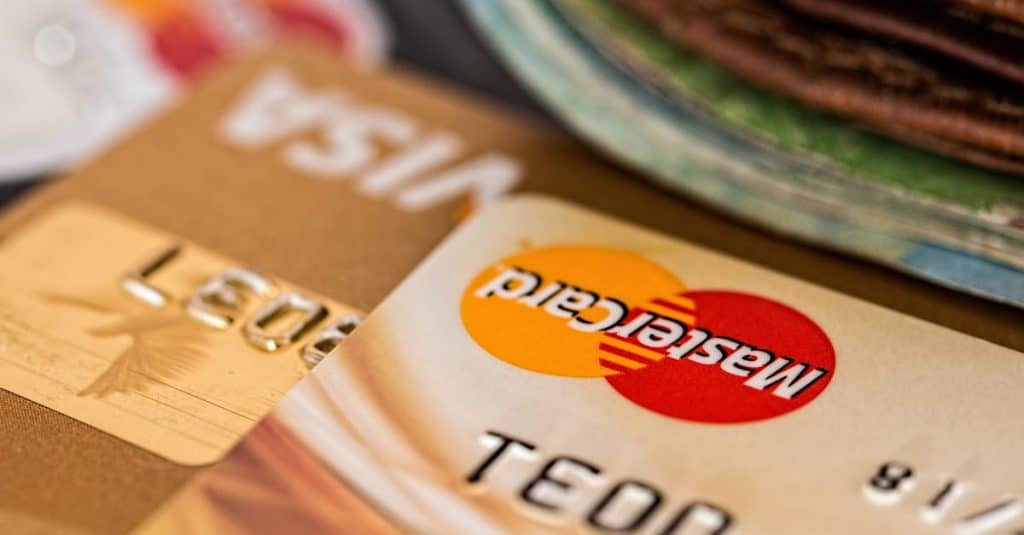In the ever-evolving world of cryptocurrency, you might’ve come across Coinbase and Coinbase Wallet. But do you know the difference? Are they just two sides of the same coin, or is there more to it?
This article will guide you through the maze of features, benefits, and potential drawbacks of using Coinbase and Coinbase Wallet. We’ll help you understand which one might be the best fit for your crypto needs.
So, whether you’re a seasoned crypto trader or a beginner just dipping your toes into the virtual currency pool, stick around. You’re about to discover the ins and outs of these popular platforms.
Understanding Coinbase
Optimized with essential keywords, this section flexibly explores the ins-and-outs of Coinbase. It features defined subtopics that delve into what Coinbase is, key features, and services they offer.
What Is Coinbase?
Coinbase serves as a robust digital currency platform where traders purchase, sell, and manage their cryptocurrency portfolio. As a crypto-friendly bank, Coinbase transforms the concept of traditional asset management by easing the process of buying, selling, and storing digital currency like Bitcoin, Ethereum, and more. The platform’s primary aim is to create an open financial system that is accessible to all and not just for the tech-savvy.
Key Features and Services
The strength of Coinbase lies in the impressive range of features and services it provides its users. Some of the key aspects of Coinbase include:
- Ease of Use: Coinbase offers a user-friendly interface, making it simpler for newcomers to navigate the world of crypto trading.
- Security: The question, is Coinbase wallet safe, often comes up. Yet, the platform uses a combination of encrypted keys and Secure Socket Layer (SSL) security measures to secure user data and funds.
- Variety of Digital Currencies: With support for numerous cryptocurrencies, Coinbase enables diverse investment options, reflecting in queries like new Coinbase listings that regularly populate the crypto space.
- Versatility: Coinbase isn’t just for purchasing and selling currencies; it allows users to stake, borrow, and lend digital assets as well.
By offering such extensive services, Coinbase positions itself strongly in the battle of Coinbase vs Coinbase Wallet, shedding light on why it continues to attract a burgeoning user base globally.
Exploring Coinbase Wallet
What Is Coinbase Wallet?
Coinbase Wallet embodies a standalone app separate from the main Coinbase platform. Often described as a “crypto-bank,” it serves a more advanced role. With the ability to store a wide variety of cryptocurrencies, you’re not limited to the digital currencies listed on Coinbase. Higher flexibility is a distinct advantage, particularly for more experienced cryptocurrency users or those keen on exploring new crypto offerings. You can manage your private keys directly in this self-custodial wallet. Contrary to popular belief, Coinbase Wallet’s operations exist independently from your Coinbase account, if you happen to have one.
Key Features and Security Measures
Outlining the core features and security measures can give a clearer picture of what Coinbase Wallet offers.
- ERC-20 and ERC-721 Support: Contrary to Coinbase, Coinbase Wallet holds support for ERC-20 tokens along with ERC-721 collectibles. This means it’s quite potent for storing not only cryptocurrencies but also digital assets, like NFTs.
- Ease of Crypto Trading: A decentralized exchange (DEX) gets integrated directly into the Coinbase Wallet. It allows easy trading of cryptocurrencies without a centralized platform.
- Official DApp Browser: Official DApp support is given through the dedicated DApp browser. You can seamlessly interact with various decentralized applications (DApps) using this feature, including DeFi projects.
- Secure Assets: It’s crucial to ensure assets are safe. Coinbase Wallet delivers a secure enclave for private keys. You own the keys rather than a centralized entity. Biometric authentication and Secure Enclave technology enhance security measures, considerably reducing chances of unauthorized access.
- User-Driven Backup: Coinbase Wallet offers a user-controlled encrypted recovery phrase backup system. This mechanism boosts the entire safety profile, allowing for secure restoring of your wallets on any device.
Exploring “is Coinbase Wallet safe” as a query, these features provide a baseline understanding of the platform’s extensive security measures and versatile capabilities within the crypto ecosystem.
Coinbase vs Coinbase Wallet: The Comparisons
Looking deeper into these platforms, specific comparisons can be drawn in the areas of User Interface and Experience, Security Features, and Fees and Costs.
User Interface and Experience
Comparing Coinbase to Coinbase Wallet, notice that Coinbase provides a user-friendly interface. It’s designed for beginners in the cryptocurrency domain, integrating a seamless transaction system, convenient navigation, and a clear dashboard that shows you your assets prominently.
In contrast, Coinbase Wallet caters to experienced users adept at handling a more complex system. It’s designed for direct interaction with decentralized blockchain technology. You get access to a sundry of features such as an official DApp browser and an inbuilt decentralized exchange which isn’t seen in Coinbase.
Security Features
Talking about security, Coinbase implements a robust system to protect your digital assets. They store 98% of the customers’ funds offline, limiting the risk of hacking. They also carry insurance coverage against theft and cybersecurity breaches. Two-Factor Authentication (2FA) bolsters the standard login procedures, adding an extra security layer.
On the other hand, Coinbase Wallet offers you complete control of your private keys—a function not possible with Coinbase. Security in Coinbase Wallet is further enhanced with user-driven backups and biometric authentication features. If “is Coinbase Wallet safe” had been your concern, believe that it does embed diligent security measures.
Fees and Costs
As for fees and costs, both platforms have different approaches. Coinbase imposes transaction fees based on the pricing tiers which depend on your country and the payment method. So it’s a mix of fixed and variable costs.
On contrary, Coinbase Wallet doesn’t charge you for transferring or receiving cryptocurrencies. But remember, network fees or “gas” charges by the Ethereum blockchain apply when you conduct transactions. These fees don’t go to Coinbase Wallet but to the miners who validate the transactions on the blockchain.
Observing these comparisons, you can conclude whether Coinbase or Coinbase Wallet aligns better with your crypto needs. It might be the user-friendliness of Coinbase or the sophisticated functionality of Coinbase Wallet that appeals to you. Each comes with its distinct plus points and considerations.
Use Cases: When to Use Coinbase vs Coinbase Wallet
To make an informed decision about which cryptocurrency platform aligns better with your needs, it’s important to understand the ideal scenarios for both Coinbase and Coinbase Wallet.
Ideal Scenarios for Coinbase
Coinbase, as a premier cryptocurrency exchange platform, particularly suits users who are new to the crypto world. For instance, if you’re making your first purchase of a digital currency, Coinbase’s beginner-friendly interface makes the process straightforward and less intimidating. Offering support for various digital currencies, Coinbase has a range of offerings you can delve into.
These qualities make Coinbase an ideal platform for those who are just starting their journey into cryptocurrencies, prefer a simple and user-friendly interface, and want to buy or sell a wide array of digital currencies. Coinbase also boasts robust security measures, with a large portion of its digital assets stored in offline, secure storage, thus minimizing the risk of hacking.
Importantly, Coinbase provides insurance coverage, providing comfort to its users. Should you desire a platform that provides insured digital currency investments, Coinbase is your go-to option.
Coinbase also excels in situations when you need to quickly convert your cryptocurrency into traditional currency for withdrawal. This ability to smoothly transition between digital and traditional currencies underscores Coinbase’s advantage in facilitating seamless financial transactions.
Ideal Scenarios for Coinbase Wallet
On the other hand, Coinbase Wallet is tailored for more experience crypto users who are looking for advanced features.
If you’re heavily involved in the world of decentralized applications (DApps), or own ERC-20 tokens and ERC-721 collectibles, Coinbase Wallet provides the necessary functionality. With an official DApp browser, Coinbase Wallet facilitates interactions with decentralized applications, making it ideal for DApp enthusiasts.
Transaction-wise, if you want a platform where transferring between wallets doesn’t incur a fee, Coinbase Wallet presents an advantage. Note, however, that it does charge Ethereum network fees.
Most importantly, Coinbase Wallet is for those who want full control over their crypto assets. It allows independent management of private keys, which is a significant feature for seasoned crypto users prioritizing security. Coinbase Wallet’s structure enables users to back up and restore their wallet on any device, an essential element for those who want independence and assurance in case of device loss.
Coinbase Wallet is prime for advanced users who want control of their private keys, use DApps, own ERC-20 tokens and ERC-721 collectibles, and value wallet-to-wallet transfers without the platform imposing its own fee.
Conclusion
You’ve journeyed through the distinctive features of Coinbase and Coinbase Wallet. It’s clear that both platforms cater to different user needs in the crypto landscape. For those new to the world of digital currencies, Coinbase’s user-friendly interface and robust security measures make it a solid choice. It’s a beginner-friendly platform that offers a seamless way to dip your toes into the crypto pool.
On the flip side, Coinbase Wallet is an advanced tool designed for seasoned crypto users. If you’re intrigued by DApps, ERC-20 tokens, and ERC-721 collectibles, and wish to have full control over your crypto assets, this is the wallet for you. It’s a more sophisticated platform that allows for greater flexibility and independence in managing your crypto assets.
The choice between Coinbase and Coinbase Wallet ultimately hinges on your individual needs, experience level, and crypto ambitions. Choose wisely and happy trading!
What is the difference between Coinbase and Coinbase Wallet?
Coinbase is a user-friendly platform that supports various digital currencies, ideal for crypto beginners. It provides robust security and makes conversion between digital and traditional currencies seamless. On the other hand, Coinbase Wallet is an advanced platform for experienced users. It supports a wider array of cryptocurrencies, including ERC-20 tokens and ERC-721 collectibles, and allows users to manage private keys independently, ensuring more control over crypto assets.
Can Coinbase Wallet hold more types of cryptocurrencies than Coinbase?
Yes, Coinbase Wallet can hold a wider range of cryptocurrencies than Coinbase, including ERC-20 tokens and ERC-721 collectibles, which are not supported by Coinbase.
Who should use Coinbase Wallet?
Coinbase Wallet is ideal for experienced users who are interested in interacting with decentralized applications (DApps), owning ERC-20 tokens and ERC-721 collectibles, and having full control over their crypto assets.
What security measures does Coinbase Wallet offer?
Coinbase Wallet boasts robust security measures. Users manage their private keys independently, allowing for more secure control over their assets. Additionally, wallet backup and restoration are user-driven, and biometric authentication is supported.
Is it easy to trade on Coinbase Wallet?
Yes, Coinbase Wallet includes a decentralized exchange that allows for easy trading between cryptocurrencies. It also supports fee-free wallet-to-wallet transfers.






